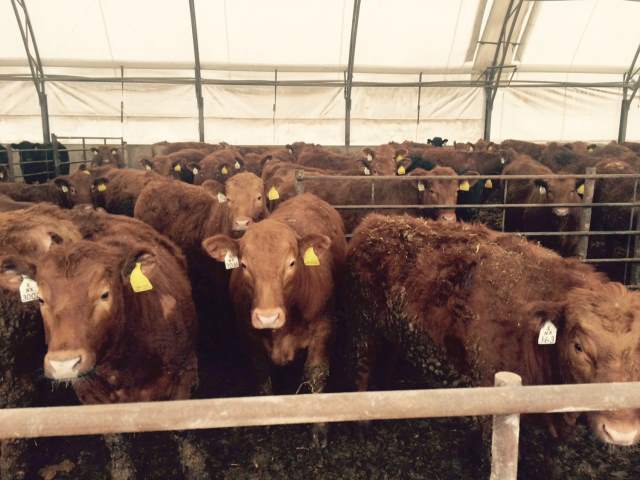DNA test scores show real-world cow-calf application
Red Angus trial using DNA scores and carcass results in the packing plant show advantage of using genetic tests to sort cattle.
December 16, 2016

DNA tests are now routine for seedstock breeders. But are they valuable for commercial cow-calf producers who are trying to optimize efficiency while controlling costs?
The answer is yes, according to the results of a recent study. The study, completed by the Red Angus Association of America (RAAA), gathered DNA data on a set of Red Angus calves and followed the cattle through harvest, collecting phenotypic data. The results illustrate that DNA scores accurately predicted carcass weight, marbling score and overall carcass value.
The cattle were raised and owned by Bob and Elaine Yackley of Onida, S.D., and fed at a custom feedyard. A total of 91 head of 2015-born steers comprised the group that was DNA tested with Igenity Silver and followed through harvest to obtain carcass data on each individual animal.
The top 25 head with the highest DNA scores for average daily gain (ADG) and marbling were compared to the bottom 25 head, which exhibited the lowest combined DNA scores for the same two traits. The comparative analysis reveals that the top DNA-scoring steers produced heavier carcass weights as a result of faster rates of gain (21 pound advantage). They also had higher average marbling scores and higher quality grades, with notably more upper two-thirds Choice grade carcasses.
Even in a softened fed cattle market, the difference in value between the two groups was $50.60 per head favoring the high DNA-scoring steers. Weight and marbling make a big difference when selling cattle on a grid.
“These cattle had the right combinations of genetics and management in addition to being fed to the correct endpoint,” explained Gary Fike, RAAA director of commercial marketing. “The fact that out of the 50 head in this comparison, there was only one Yield Grade 4 in the low-DNA group and none among the top-DNA steers, is a testament to that.”
Fike, who organized and conducted the field study, further noted that these results demonstrate how DNA can be successfully used in commercial operations. “This is real-world data,” he said. “By using DNA testing and eliminating low-scoring animals for the traits of interest, producers can be confident they are building superior genetic value into their herds. That is why we recommend testing all replacement heifer candidates and culling low-scoring females before breeding."
You May Also Like



